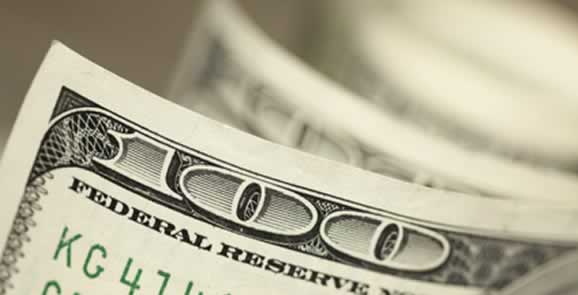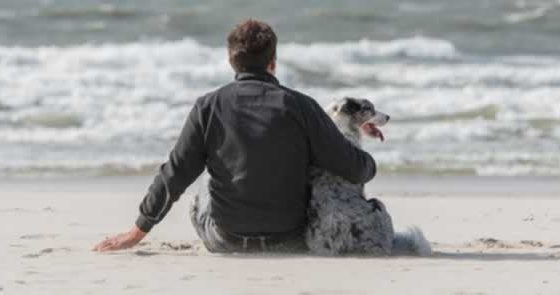Let me get right to the point: The only way to get more out of life is to choose less.
- Less stuff.
- Less activity.
- Less wanting more.
- Less of you.
I apologize if this seems a little abrupt. Believe me, I searched for a different way to kick this off. I wanted to ease into the heavy stuff to make it more palatable and less offensive. Still, more than once, I found myself hitting the Delete button on a touching story because “touching” and “heartwarming” didn’t quite fit.
I also thought it might be easier if some famed contemplative hit you with the bad news. Maybe Saint Augustine wouldn’t insult you while telling you all your priorities are wrong, that you’ve wasted your life in your pursuit of comfort and material goods. Perhaps you wouldn’t be angry if C. S. Lewis told you the frustration that fills your life will never go away until you slow down and begin saying no to yourself and your children. And if Mr. Rogers confronted you with your need to crawl out of the center of your universe and assume a lifestyle of humility, who could argue?
So I searched my library for just the right quote from my favorite authors. One or two came close, but I thought it better just to come right out and say what you and I need to hear: The key to making life matter is to choose to live with less.
Give stuff away.
Simplify your lifestyle.
Deflate your opinion of yourself.
Choose less because less is more.
There I go again, writing with a two-by-four. I keep trying to stop. A wise man once said the bruises of a friend are better than the kisses of an enemy, and that’s what I’m trying to do: bruise my friends, beginning with myself. I don’t enjoy the process, but there is no other way. The bruises on my forehead are starting to add up, but I can’t help myself. I’ve reached a point where the pain is better than the delusion that I can have it all and still have my life count for something. For too long I’ve spiritualized the hard sayings of Jesus and Moses and Solomon. I know real life is not measured by how much I own, but I assumed I could own as much as I wanted as long as I kept everything in its proper perspective.
I can’t. None of us can.
We can’t because the world of work and school and mortgages and loading kids in the minivan for ball practice and band recitals and school open houses leaves little time for anything else. The psalmist said to be still and know that the Lord is God, but stillness is hard to find in the perpetual motion machine in which most of us live. Jesus said He came that you and I might have life and have it to the full. My life is full. Yours probably is as well. Too full. Full of stuff. Full of activities. Full of ever-expanding schedules and shrinking days. Full of the desire for more. Somehow, I don’t believe this is what Jesus had in mind. Through it all, something is missing. And that something is the very thing I really want out of life.
I want joy. Not happiness, but real abiding joy — a joy that outlasts hard times and refuses to be chained to good times.
I want real relationships. I know a lot of people. I want to really know some of them, beginning with my family. I want freedom. Not the freedom to do what I want, but the freedom to go to sleep at night without the weight of worry raising my blood pressure.
But more than anything, I want what I devote my life to, to last longer than I do.
Unfortunately, all I really want out of life is constantly squeezed out by noises that refuse to take no for an answer. The bills, they demand to be paid. They get really angry when they’re ignored. And food, everyone in my household has this strange addiction to food. Someone has to go buy it. Someone has to prepare it. Someone has to clean up afterward. If only the Little Red Hen were available. And the house, it always wants something. “Mow my yard,” it says. “And clean my gutters and fix my roof and unclog my sink.” The house never shuts up (although I learned a long time ago to tune out its demand to be cleaned). And I’m just getting started.
Then there’s the rush. It never seems to end. Between the job and the kids and church, there’s never a moment to call our own. Even if we did, it isn’t as though our minds would be free to focus on what we really want out of life.
The only thing better than the rush is stress-filled rush. And stress is everywhere. Especially at work. If by some strange coincidence we managed to have a stress-free day on the job, the world might come to an end. Someone always has a complaint or the boss wants to downsize manpower while increasing production or rumors of a merger and subsequent job cuts fl oat around. If everybody I worked with weren’t so — how can I put this mildly? — common sense?challenged and if they would just stop griping for even a day, maybe then I could make a serious run at joy or real relationships or doing something that will outlast me. But they don’t and I can’t and I wonder if I ever will.
And home isn’t much better. The average family is always on the run. This conglomeration of people who love one another rarely finds time to eat a meal together. And with each passing year, it seems to get worse. Too much to do, too little time — “intimate strangers” may be a better label than “family.”
I look for a little solace at church, but between committee meetings and Bible study groups and taking the youth bowling and working on the building (which wasn’t built right to begin with, so much for quality work from volunteers), the place sometimes gives me more headaches than peace and joy and love. Then the pastor asks for volunteers for a new program he wants to start. I know I should sign up, but I don’t want to give up another Saturday. Instead of feeling better about my life, I walk away feeling guilty.
Now that my whine fest is over, can I be completely honest? The demands and stress of the day rarely keep me from pursuing deeper relationships with my wife and daughters. My job doesn’t rob me of time I might spend on the things that are most important to me. Mowing the lawn and painting doors and all the constant maintenance my one-hundred-year-old house demands never stop me from doing what I want to do. No, the greatest barrier I must overcome in my struggle to find the life I really want is me. And your greatest barrier is you.
I know what I say I want out of life. With my lips I confess that joy is found in growing closer to people I love and becoming more like the God I say I follow. But when push comes to shove, I shove myself onto the couch, remote in hand, and waste hours at a time, ignoring both my God and my family. I know with my head that money can’t buy happiness, but that doesn’t stop me from drooling over the Best Buy ads. And then there’s the schedule. No one makes us try to do it all. Running children from one event or practice to another until we identify the days of the week by the coach we see is not forced upon us. The pressure comes from within. From inside of me. I could say no. And so could you. But we don’t. We can’t. Somehow the incredible pace of our schedule meets a need. It makes us feel important, useful. Again, the problem isn’t the coach who calls and asks if I can make twenty-five sandwiches for the track team. The real problem is me.
My life and my schedule and my stress didn’t choose me. I chose them. Before I can even think of trying to squeeze more joy out of life, I must first realize that something has to change. Only when I reach the point of frustration meltdown — when I go to bed and wonder where the day went and dread dragging myself out from under the covers in six hours — only then will I be willing to make some needed changes.
And that’s what this book is all about. This isn’t a book that will tell you how to squeeze more out of an already packed schedule. Nor will it tell you how to find both material comfort and spiritual bliss. You will not find the path to the simple life in which you and your family will live in perfect peace and harmony. I wish you could, but perfect peace and harmony cannot be found this side of heaven. Instead, this is a book about making one of the most difficult decisions any of us will ever make — the decision to choose less out of life so that you might find what you really want. The only way to enjoy life is to choose to live with less, for less is more.
What follows are not some pie-in-the-sky platitudes discovered while spending a couple of years holed up in some desert monastery. Nor are the following sixteen chapters full of perfected advice. More than anything I’ve ever written, this book has been a journey. I started working on the idea more than five years ago. As time passed, I assumed that moving from a concept to words on a page would be easy. After all, I felt like I’d lived the tough choices this book challenges you to make. And then I started writing. I discovered I had so much more to learn.
What follows is the most difficult book I’ve ever attempted — a fact I find more than a little ironic. A book on simplifying life complicated my own life as I tried to write it.
Now, looking back over the process of the past few months, I realize it had to be this way. Choosing less in a world that refuses to deny itself anything will never be easy. Ever. Nor did I want to paint the picture of some ideal life with cliché¤ solutions that would only leave you frustrated and burdened with guilt. This world is a complicated place and has been since the day Adam and Eve disobeyed God and plunged the world into sin. Finding our way through this mess will not be easy.
Finally, I wanted this book to accurately reflect the message of the Bible. Real life can only be found in a right relationship with the God who created you. I pray that message flows through every page.
The only way to get more out of life is to choose less. Less stuff. Less activity. Less wanting more. Less of you. And less of me too. May God give us the courage to choose less so that we might experience more of the life He has planned for us. Adapted from Living with Less: The Upside of Downsizing Your Life, by Mark Tabb.
Copyright © 2006 Mark Tab, published by Broadman & Holman Publishers, used with permission.
[schemaapprating]










